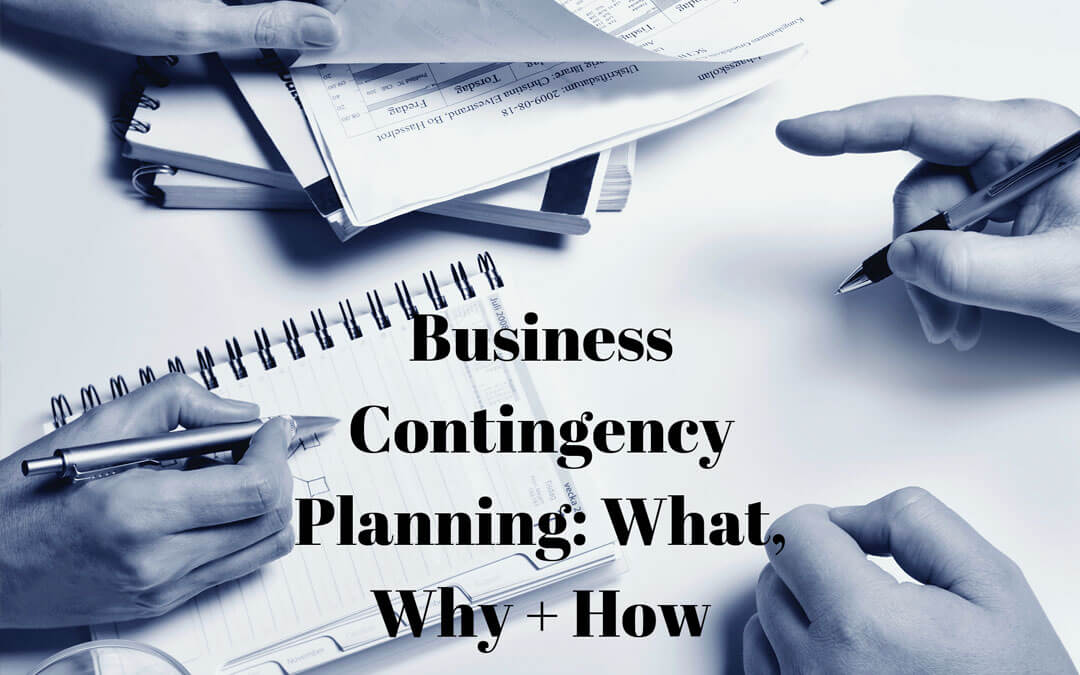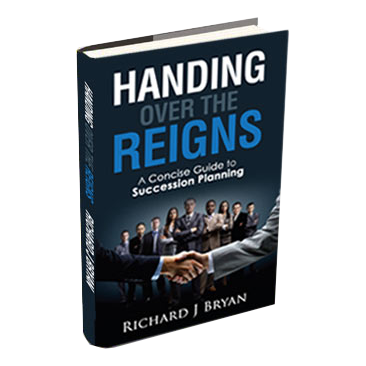As a succession planning speaker, I’m often asked about business contingency planning within the larger context of succession planning—are the two ideas related, and how? The answer isn’t difficult to understand, but it does require a bit of clarification.
THE WHAT
To put it simply, a business contingency plan is just one part of your overall succession plan—it’s the roadmap that will enable you to navigate a dire leadership emergency. A well-designed contingency plan provides an element of protection for the continuity of your business in the event of the CEO’s temporary or permanent illness, incapacity or death.
Within the context of your overall business, though, contingency planning is a broader idea—it’s basically a disaster plan covering a variety of scenarios. In this case, a sudden loss of leadership might be one of many emergencies for which you’d want to provide a basic recovery plan. These scenarios should be specific to your business, in the way that Hawaiians might plan for a tsunami, while Californians might plan for a catastrophic earthquake.
THE WHY
The most critical benefit of having a business contingency plan goes back to the roadmap metaphor I raised above. During a difficult time full of emotional uncertainty, there’s a clear path to safety—surviving leadership can just follow the signposts, secure that each step has been clearly delineated and agreed upon in advance by key stakeholders. Of course, the key is is doing this thinking PRIOR to any catastrophic events, with focused eyes and a clear head.
When I became CEO of the family business, my father was facing a life-or-death operation; his incapacitation was sudden, and it was challenging on both a personal and professional level. While the “grand plan” was always for me to succeed him, there was no specific “action plan” in place for what that should look like. When I was thrust into the CEO role, nothing was mapped out—not the strategy I should follow, who I should turn to for help, or anything.
As I often tell my succession planning speaker clients: like writing a personal will, contingency planning requires you to explore in detail ALL the worst-case scenarios. And when yours is a family business, this requires you to think about some very unpleasant situations. But trust me when I say that your discomfort will be much more fleeting if you do this in advance.
THE HOW
While your individual contingency plan will obviously be unique to your business, in my discussions on the succession planning speaker circuit, I’ve noticed there’s a basic cadence that most plans follow. Here’s a general skeleton for you to flesh out with your own pertinent details:
1. TEAM. All stakeholders need not be directly involved in the contingency planning process. Select your A-team and empower them as you see fit.
2. STRATEGY. Create a short-term strategy that’s sanctioned by family members, shareholders and other stakeholders like your Board of Directors.
3. FUNDING. Identify a plan to fund the business during the interim period; key person insurance may be helpful here, should you need to hire a new CEO.
4. STAFFING. Outline how to cover any need the business may have for human resources, and identify any search firms or outside players.
5. AUDIT. Set out a process for conducting a “State of the Union” audit to review roles, identify immediate business needs and estimate financial impact.
6. MESSAGE. Work with your A-team to identify a cohesive messaging around the succession—then communicate to staff, customers and suppliers.
7. TIMELINE. Provide a suggested timeline for shifting from immediate crisis management into longer-term strategy planning for the organization.
Need a deeper dive on this complex subject? Schedule a succession planning speaker keynote presentation by calling 877-316-3110. To continue this series and learn how to develop your successors, simply sign up for our mailing list.


